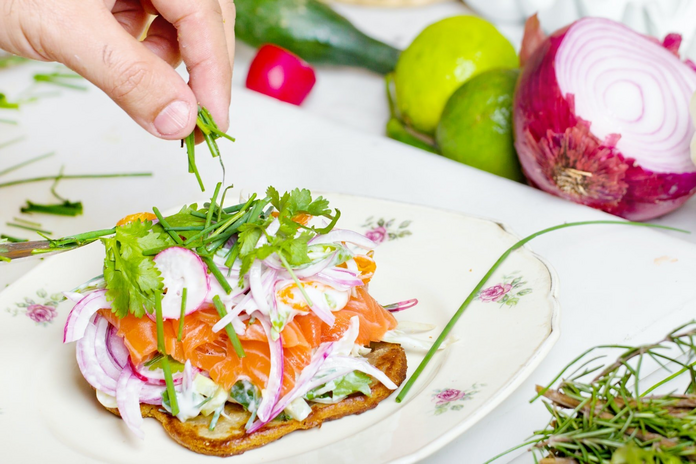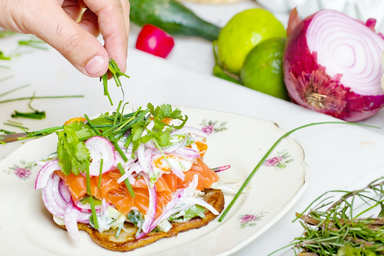While it might not come as a shocker, having a meal plan first year was pretty convenient. No prep-time, cooking-time or the dreaded clean-up time. Besides the occasional long lineup if you went to the dining hall at the prime-time of 5:00pm, your meals were generally ready-to-go! But like a lot of students here at Queen’s, you are living out of residence now and don’t have that useful (yet expensive) meal plan to keep your hunger at bay. While some may resort to eating out 5 days a week, that can get ridiculously expensive, and it’s hard to eat healthy every time you do eat out. It probably wouldn’t be an exaggeration to say that many students new to off-campus living have come to realize that finding quick yet nutritious meals to cook is not only difficult, but also frustrating! Luckily, we’ve compiled a list of 6 quick and nutritious foods that will not only save you some valuable time and money, but keep you healthy as well.
[pagebreak]
Kale:
This leafy green vegetable is packed with vitamins and minerals, and best of all it doesn’t have an over-whelming bitter or strong taste! It is high in fiber, iron, calcium, vitamin A, C and K, and is filled with antioxidants that help prevent various cancers, making it quite the super food. It’s easy to prepare and cook too. After you’ve washed and separated it from the stalk, just put in in a sauce pan over low-medium heat and cover. It’s done when it has shrunk to half its size (about 5 minutes), and you can just add a splash of balsamic vinegar to give it flavour. If you’re feeling adventurous, test your skills with this kale chips recipe.
[pagebreak]
Quinoa:
This ancient grain is high in fibre, low in fat, and a good source of iron and manganese. Better yet, it’s quick to cook too, and there are an infinite amount of ways you can prepare it to cater to any taste. Try this recipe for the Southwestern Quinoa Salad
[pagebreak]
Lean Meat (Chicken):
Chicken is a great source of animal protein and is widely available. What makes it better than other meat, such as red meat or pork, is that it has a lot of protein considering the small amount of fat it contains, hence the name “lean meat”. While meat is on the more expensive side, it’s not ridiculously costly, and there are a lot of simple ways to prepare it to ensure you are getting enough protein in your diet. You can opt for turkey instead since it is also high protein and low fat. Just visit the Food Network and search “sautéed chicken breasts” for quick and easy recipes
[ pagebreak ]
Blueberries and Greek Yogurt:
Blueberries are packed with anti-oxidants that help fight free radicals that damage your cells and are also a good source of vitamin C. Just mix a handful with plain or vanilla flavoured Greek yogurt for a low-fat, calcium rich snack. You can even substitute in frozen blueberries for a cold treat! Honey can be used as a natural sweetener if you are using plain Greek yogurt.
[ pagebreak ]
Sweet Potato:
While sweet potatoes might be a bit more expensive than white potatoes, they are just as easy to prepare and are better for you than its white counterpart. It’s high in fibre, has 400 times more vitamin A then white potatoes, is a better source of iron and vitamin C, and contains fewer calories! It’s quick to prepare mashed sweet potatoes too. Just cut the sweet potatoes into medium sized cubes when boiling them to cut down on cooking time, and mash them with a bit of milk, pepper and nutmeg for a sweet side dish.
[ pagebreak ]
Salmon:
While by no means the cheapest on the list, salmon offers a lot nutrition-wise, and would probably be the best choice of food to put a little bit more money into when you have some extra cash. The most health-conscious choice would be wild salmon as opposed to farmed salmon. Salmon contains the hard to come by omega-3 fatty acids, which we need to decrease the amount of inflammation in our bodies; inflammation is usually linked to health problems such as heart disease, diabetes and cancer. It also is a high source of natural vitamin D, which is another vitamin not commonly found in a many foods, as well as B6, B12, niacin, selenium and magnesium.

